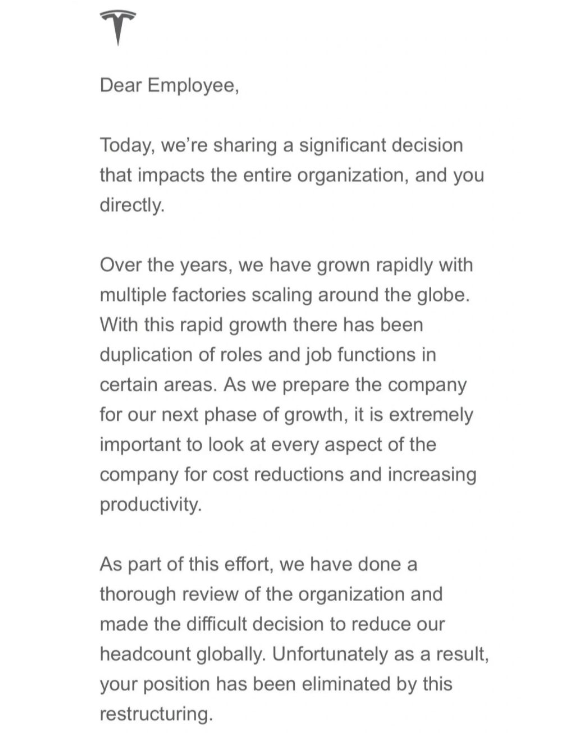As a tech executive, you might face the daunting task of conducting layoffs, which stands as one of the most difficult leadership challenges you will face in your career. Often, the impetus for such decisions stems not from personal choice but from upper directives aimed at cutting costs, addressing sales declines, or realigning with corporate strategies to boost profitability. Poorly executed layoffs can severely tarnish an organization’s reputation. Though it’s a topic I approach with considerable reluctance due to its emotional gravity, it remains a stark reality in today’s business landscape—as recent events at Tesla have unfortunately illustrated, showcasing the pitfalls of mishandling such processes.

Layoffs, though tough, must be managed with respect and empathy, preferring face-to-face conversations over emails or letters. Our employees, including those we let go, are invaluable. Respectful layoffs leave the door open for future rehiring, emphasizing the importance of maintaining their trust. Laying off employees is hard; they have families and financial commitments, making the process distressing. It’s crucial to remember the real people affected by these decisions. Therefore, it’s essential to handle layoffs with empathy and compassion, delivering the news personally, explaining the reasons clearly, and providing ample support and resources to those impacted.
Layoffs affect the remaining employees profoundly, causing job security fears and demotivation. Open communication, transparency, and support are crucial. Companies can handle layoffs effectively by having a dedicated team, providing outplacement services, and offering severance packages. This approach displays care for affected employees, safeguards the company’s reputation, and prevents legal issues. Treating everyone with respect and understanding demonstrates a commitment to employee well-being, fostering a stronger team and a better workplace. Reorganizing roles, providing training, and nurturing a positive culture with open communication and well-being support post-layoffs are vital. Emphasizing the future and employee well-being boosts morale and productivity. Managing layoffs with care, empathy, and transparency is key to minimizing negative effects and maintaining team trust.
As a tech exec, layoffs are challenging but can be managed to reduce their effects on employees and the company’s reputation. By respecting everyone, planning ahead, companies can navigate these challenges, maintaining a positive work culture. Employees are vital, and their welfare must be a top priority, promoting transparency, communication, and support in tough times.







